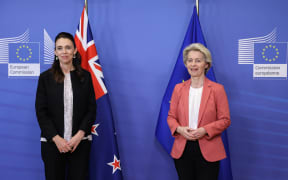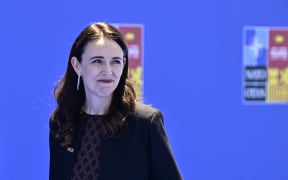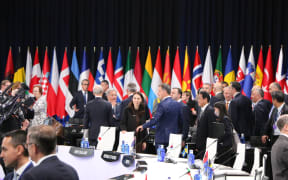The prime minister will need to explain to farmers why there were not more gains in meat and dairy in the trade agreement with the EU, the opposition says.
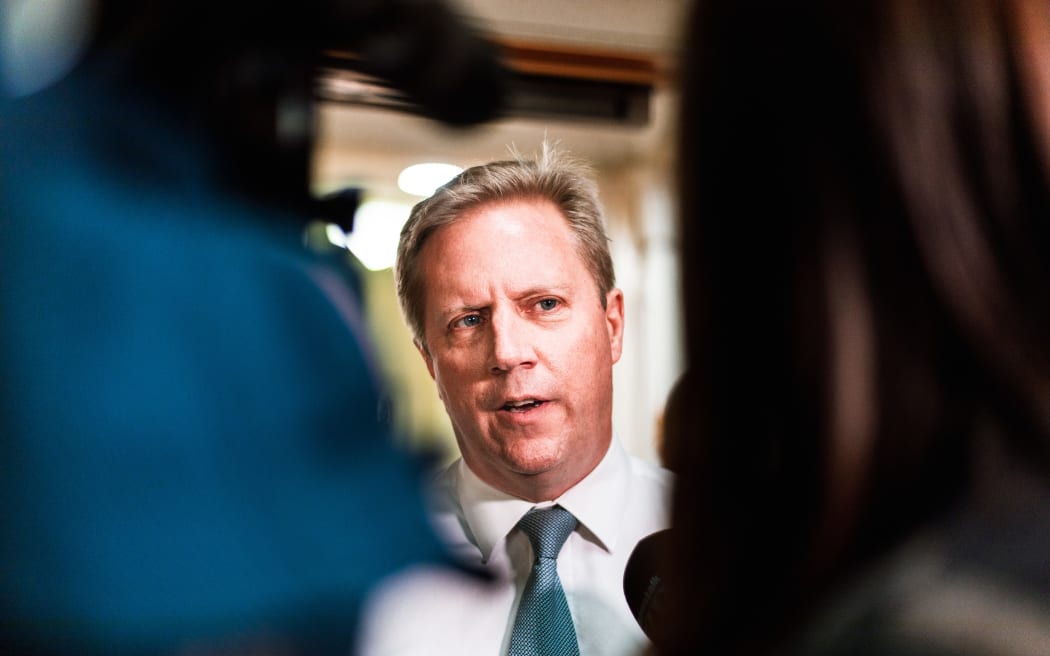
National's Trade and Export Growth spokesperson Todd McClay. Photo: RNZ / Samuel Rillstone
Prime Minister Jacinda Ardern and President of the European Union Ursula von der Leyen unveiled the details of the new deal in Brussels overnight (NZ time), with negotiations continuing until just hours before the announcement.
The deal will immediately remove tarrifs for agricultural exports including kiwifruit, onions, apples, wine and mānuka honey, as well as manufactured goods, seafood and fish. Service providers - including in education - will also gain easier access to the EU.
However, the gains for major export sectors meat and dairy are more restricted.
Quotas for beef will increase to 10,000 tonnes and duty-free access for sheep meat to 38,000 tonnes a year, but the Meat Industry Association said for a market that consumed 6.5 million tonnes of beef annually it fell short of expectations.
National's Trade and Export Growth Spokesperson Todd McClay said he gave the trade agreement a six out of 10.
"There are some good gains in a number of areas, kiwifruit and the wine sector and seafood will be very happy but I can see why the dairy and meat sector in New Zealand is so disillusioned."
He said the deal was good for New Zealand and the gains were important, but he was not sure New Zealand would have an opportunity to revisit dairy and meat export access to the EU any time soon.
"The prime minister must have made the decision that actually the deal was good enough and she'll have to come back and explain to many of our farmers why she didn't get more," he said.
"There hasn't really been anything delivered from them and I think in that respect it's a missed opportunity.
"We have really good access in the FTA with the UK, we have tariff-free access for dairy into China and we have actually next to nothing of commercially meaningful value into the European Union."
He said the restrictions on geographical indicators - naming conventions specific to certain regions - were not as strong as was initially signalled, but it remained to be seen whether the government had agreed the EU could continue to add products to the list in future.
"I hope the government hasn't agreed to that because it would restrict us further. On the one hand [if] we're not able to sell them a lot of dairy products but we've been restricted on what we can do in other parts of the world, that would be unfair to our exporters."
Devil in the detail on climate - Greens
Green Party Spokesperson Golriz Ghahraman said the devil would be in the details when it came to climate commitments.
She said the party last week had issued a joint statement with EU Green Parliamentarians urging negotiators to include broad criteria including climate obligations.
"Without seeing the full text I probably can't celebrate this fully, but our main point of celebration will of course be that there's sanctionable commitments to meeting Paris agreement targets and obligations in this agreement and that is historic."
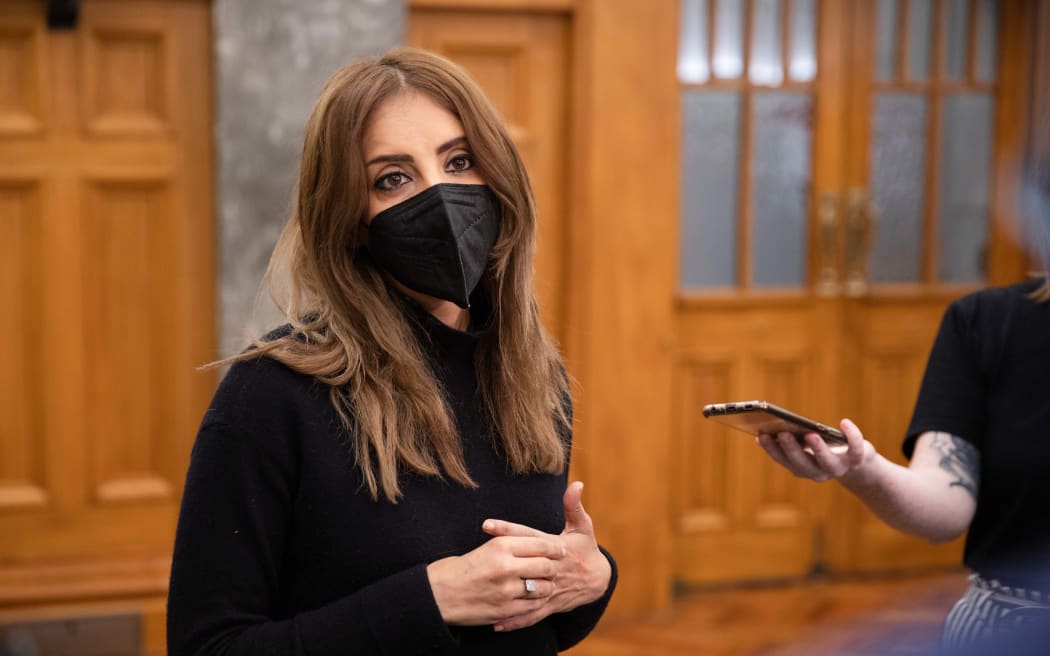
Golriz Ghahraman Photo: RNZ / Angus Dreaver
She said there were higher hopes, however, for each chapter in the agreement to have a climate lens and it was not yet clear if that was the case.
"It is often the case in these agreements that the chapters that don't directly refer to climate or environment are far more enforceable than the ones that do that are termed in much more aspirational language.
"That's what we will be looking for is that every chapter - in terms of every industry, every sanction - is compatible with our obligations to climate."
Ghahraman gave the deal a "tentative eight out of 10".
Deal secures 'minimal concessions' from Europe - ACT
The ACT Party Spokesperson Brooke van Velden said free trade was always good but "this deal appears to have as much regulation as trade".
She also criticised the climate obligations being celebrated by the Greens.
"There are minimal concessions and New Zealand has bought into sanctionable restrictions on the Paris agreement that sets a dangerous precedent restricting our ability to make our own policies."
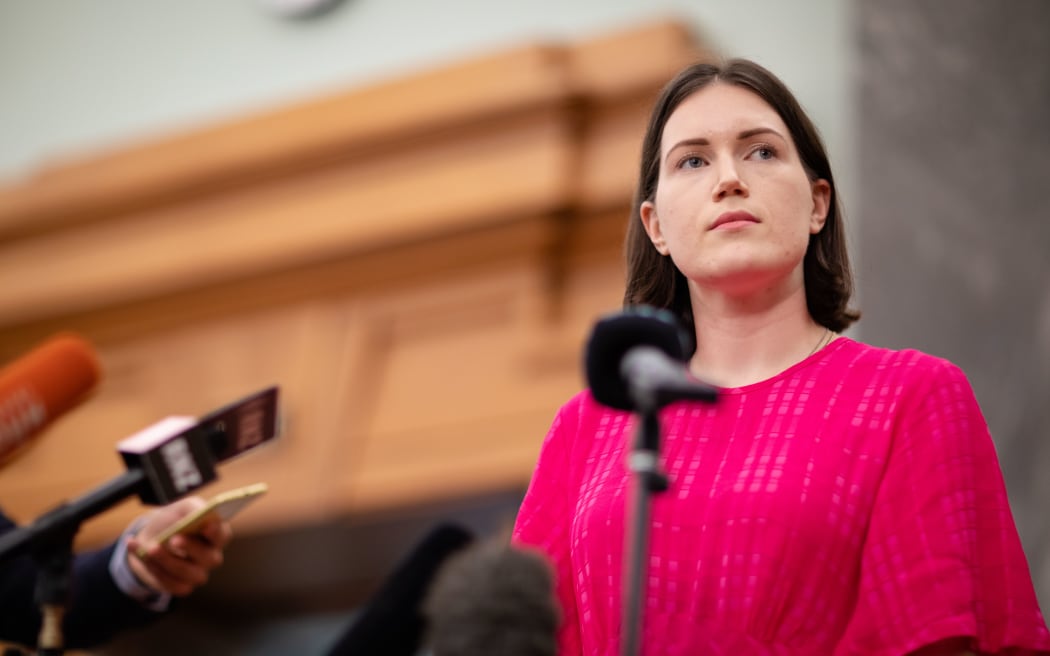
Brooke van Velden Photo: RNZ / Angus Dreaver
"Ardern appears to have used the EU FTA to bind future governments to her own political agenda while forgetting to do the hard work getting access for staple New Zealand exports."
She said it would mean very little new trade, and while some aspects of the deal were good it set a bad precedent.
"We do believe that the prime minister should have stepped back and asked for another negotiating round, based on the shoddy access for beef exporters in particular.
"I think it sets a bad precedent for future trade deals how much we're willing to give up in our beef export market."
She gave it a five out of 10, saying "we could have done better".
Academic urges greater transparency
Academic Jane Kelsey, who was an outspoken critic of the Trans Pacific Partnership while it was being negotiated, warned the EU deal could impose greater restrictions on New Zealand laws and regulations than the TPP had threatened to.
"How far that's the case we can't tell without access to the text, which only the governments have," she said in a statement.
Dr Kelsey said the government should cut the spin and give a truthful assessment of this EU deal.
"The business community has quickly debunked claims of a bonanza from market access to the European Union and highlighted the potentially huge impacts of geographic indications," she said.
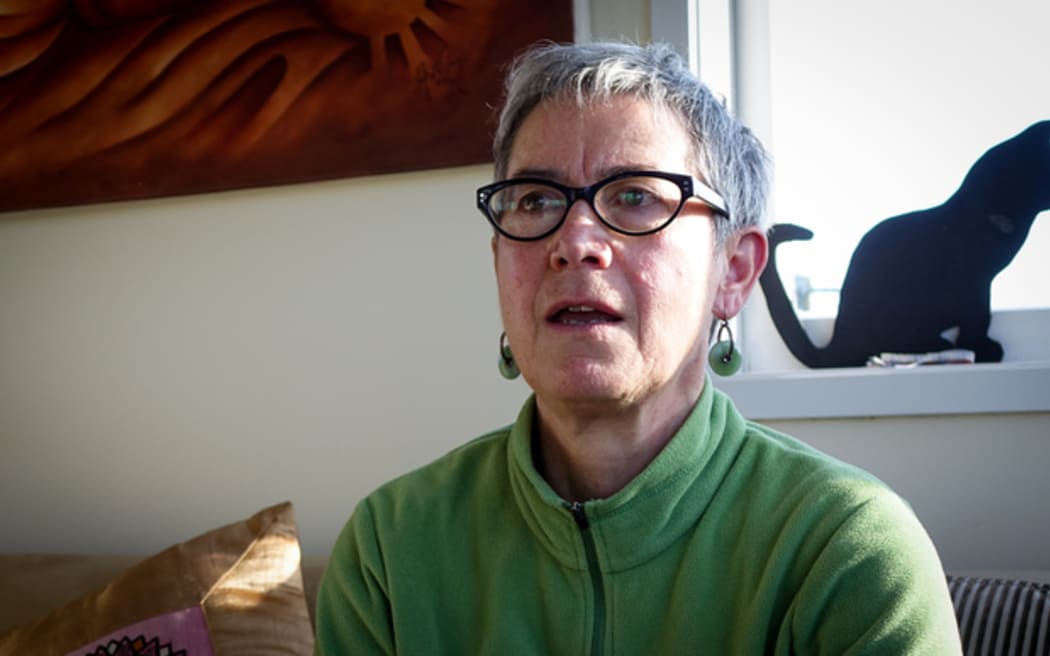
Photo: RNZ
She urged the government to ensure proper scrutiny of the bill by providing the full text, a genuine assessment of the pros and cons in its National Interest Analysis, and more than a cursory 10 minutes at select committee.
More than just agriculture was on the line, she said, particularly highlighting intellectual property provisions.
"New Zealand seems to have held back likely demands that would have increased the cost of medicines to Pharmac, something suspended in the CPTPP version of the TPPA ... but it looks like the copyright term has been extended for 20 years, which was also suspended in the CPTPP, and has recently been extended in the UK agreement."
She said the last thing New Zealand needed when governments were belatedly recognising the need for regulation of data and big tech companies was digital trade rules that would tie the government's hands.
"That is also the area where the Crown was found to have breached its Tiriti obligations to Māori in the CPTPP ... yet that is what the EU routinely demands, so long as personal privacy is protected. This is a chapter where the outcome document is especially vague."
Te Pāti Māori has not yet responded to requests for comment.
Lobby group has doubts
A trade lobby group was less than impressed by the free trade deal and said the government should probably have persevered in trying to get better terms.
International Business Forum director Stephen Jacobi said for the key dairy and meat sectors he doubted the quotas offered were "commercially meaningful".
Credit had to be given for the gains made for horticulture, wine, and fish, and for the chapters on sustainability and Maori Economic Development, but the entire deal also had to be seen in the broader context of New Zealand's trade approach, he said.
"I don't think it's going to really help us with the problem, which the government tells us all the time, is trade concentration on China."
If New Zealand was to chase further trade deals then it had to "get runs on the board" for the major sectors, and that loomed as a problem for trying to negotiate with India, which has long been touted as a desirable FTA, but where no progress has been made, Jacobi said.
"We have to take a different approach on India, that's what the government is doing and we're keen to work with them on that, but at the end of the day the same conditions will apply and if our major exporters can't get a toe in the market then you'd have to ask was it all worth it."
